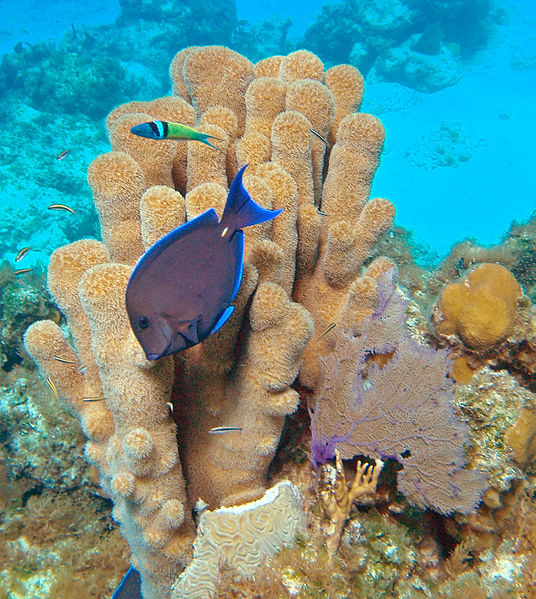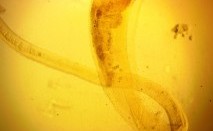
Category: Invertebrates

These marine invertebrates are known for the dazzling calcified colonies they create as they multiply and grow. Each colony is a collection of genetically identical coral organisms (polyps) that create their own calcium carbonate compartments which accumulate into the large skeletons we associate with coral reefs. Similar in structure to sea anemones, they capture tiny live prey with their tentacles as well as obtaining nutrients from symbiotic alga (zooxanthellae) that live within their tissues. Corals are very sensitive to pollution, blast-fishing, ocean-acidification, temperature change, and other disruptions to their environment.

Rub some dirt on it!
Could it be we have been too good at ridding our bodies of parasitic worms? Believe it or not, our efforts at keeping squeaky-clean and sanitary in the developed world may be contributing to increased allergies, asthma, psoriasis, even autoimmune diseases. The human immune system, having evolved with parasitic worms, recognizes them, and has learned to reduce inflammation and stimulate healing when these tiny intruders are sensed. While getting worms may be seen as too high a price to pay for many, for people suffering from severe allergies or colitis, it may be worth it. Victims of multiple sclerosis and Crohn’s disease have shown a promising reduction in symptoms (even remission in Crohn’s) after ingesting whipworm eggs - a treatment that may be worth it to some until a cure is found!
Learn more >>
 Discover Animals is a web-based educational resource offered by the NAIA
Discover Animals is a web-based educational resource offered by the NAIA